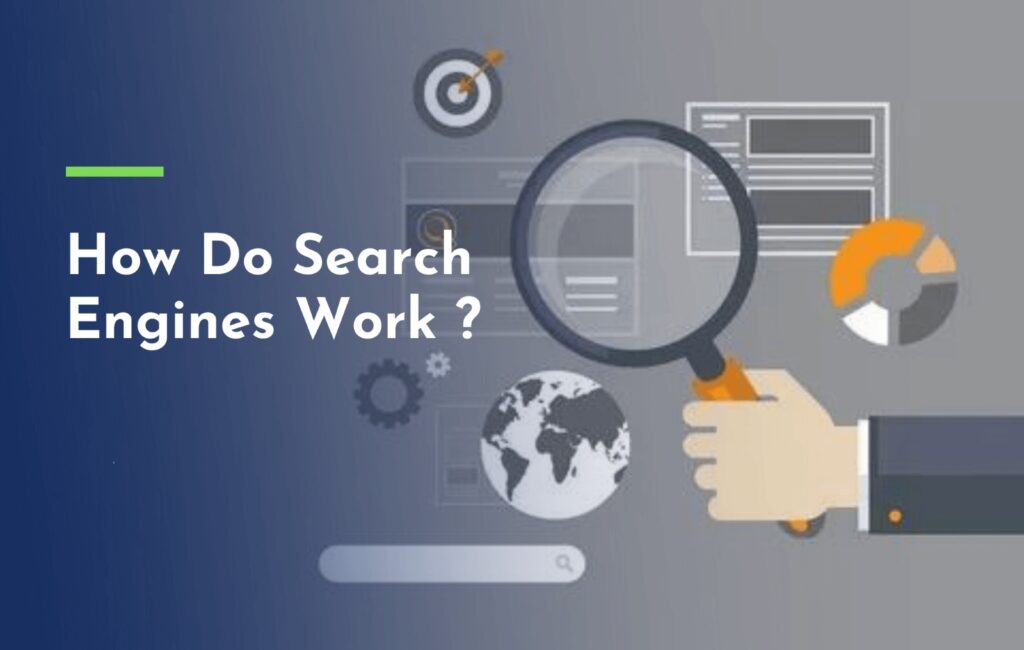
Ever wondered how you can find anything on the internet within seconds? That’s the magic of search engines work. Search engines are software systems designed to search for information on the World Wide Web. When you type a query into a search engine, it scans the web to deliver the most relevant results, whether you’re looking for a recipe, a news article, or even the meaning of life.
The Importance of Search Engines in the Digital Age
In today’s digital age, search engines have become an integral part of our lives. They are the gateway to the vast amount of information available online, helping us make informed decisions, solve problems, and even entertain ourselves. From businesses reaching their target audience to students researching for projects, search engines play a crucial role in connecting people with the information they need.
A Brief History of Search Engines
The journey of search engines began in the early 1990s with the creation of simple search tools like Archie and Gopher. However, it wasn’t until the advent of search engines like Yahoo! and Google in the mid-90s that the concept truly took off. These platforms revolutionized how we interact with the internet, making it easier to find information by indexing the web and ranking results based on relevance.
The Core Components of Search Engines
How Web Crawlers Work
Imagine little robots scurrying across the internet, visiting every website they can find. These robots, known as web crawlers or spiders, are essential to how search engines work. They start by visiting a list of known URLs, then follow links from those pages to discover new ones. This process is akin to exploring a massive library where each book has references to others, allowing the crawler to navigate and map the entire web.
The Role of Sitemaps in Crawling
Sitemaps are like a treasure map for web crawlers. They provide a structured list of all the pages on a website, making it easier for crawlers to find and index content. A well-structured sitemap can ensure that even the most hidden pages on your site are discovered and ranked by search engines.
What Is Indexing?
Once a web crawler discovers a page, the next step is indexing. Indexing is the process of analyzing the content of the page and storing it in the search engine’s database. This database, or index, is like a giant filing cabinet where information is categorized and stored for quick retrieval when someone performs a search.
The Importance of Indexing in Search
Without indexing, search engines wouldn’t be able to retrieve relevant results in a split second. Indexing ensures that content is organized logically, allowing the search engine to match user queries with the most appropriate information available.
How Search Algorithms Work
When you hit “search,” a search engine’s algorithm kicks into action. This complex set of rules determines which pages are most relevant to your query. It takes into account hundreds of factors, from the words on the page to how many other sites link to it. The goal is to deliver the most accurate and helpful results in the shortest amount of time.
The Role of AI in Modern Search Algorithms
Artificial intelligence (AI) has become a game-changer in search algorithms. With AI, search engines can understand the context and intent behind your queries, even if you don’t type them perfectly. This means more accurate results, tailored to your specific needs.
The Search Engine Results Page (SERP)
- Understanding SERP Features: The Search Engine Results Page, or SERP, is what you see after typing a query into a search engine. It’s not just a list of links anymore. SERPs are now packed with various features like ads, maps, images, and snippets that give you a quick answer without even clicking a link. Understanding these features is crucial for optimizing your content to appear in the most visible parts of the SERP.
- How SERP Layout Affects SEO: The layout of the SERP can greatly influence where your content appears and how often it gets clicked. For instance, being featured in a snippet or “People Also Ask” section can drive significant traffic to your site. Optimizing for these features means understanding how they work and how to align your content with them.
How Search Engines Rank Content
- How to Choose the Right Keywords: Keywords are the foundation of SEO. They are the terms people use when searching for information. Choosing the right keywords means understanding your audience and anticipating what they will type into the search bar. Tools like Google Keyword Planner can help you identify high-traffic keywords relevant to your content.
- The Impact of Long-Tail Keywords: While broad keywords like “shoes” may have a lot of searches, they are also highly competitive. This is where long-tail keywords come in. These are more specific phrases like “best running shoes for flat feet,” and they often convert better because they target users with a clear intent.
On-Page SEO Factors
- Content Quality and Relevance: Content is king in the world of Search Engine Optimization. Search engines prioritize high-quality, relevant content that provides value to the user. This means writing in-depth articles that answer questions, solve problems, or entertain, while naturally incorporating your target keywords.
- Meta Tags and Their Importance: Meta tags, including the title tag and meta description, are crucial on-page SEO elements. They provide search engines with a summary of what your page is about. A compelling meta description can increase your click-through rate (CTR), while a well-crafted title tag can improve your page’s ranking.
Off-Page SEO Factors
- The Power of Backlinks: Backlinks are links from other websites to your site, and they are a major factor in how search engines determine your site’s authority and relevance. The more high-quality backlinks you have, the more trustworthy your site appears to search engines, boosting your rankings.
- Social Signals and Their Influence: Social signals, like shares, likes, and comments on social media platforms, can indirectly impact your SEO. While not a direct ranking factor, they can increase the visibility of your content, leading to more backlinks and traffic.
Technical SEO
- The Importance of Website Speed: In our fast-paced world, nobody likes waiting for a website to load. Search engines know this, which is why site speed is a critical ranking factor. Faster sites not only rank better but also provide a better user experience, reducing bounce rates and increasing engagement.
- Mobile-Friendliness and SEO: With more people accessing the internet via mobile devices than ever before, mobile-friendliness has become a key SEO factor. Search engines favor websites that are optimized for mobile viewing, ensuring that users have a seamless experience regardless of the device they’re using.
The Future of Search Engines
The Rise of Voice Search
Voice search is rapidly gaining popularity, thanks to the proliferation of smart devices like Amazon Echo and Google Home. Optimizing for voice search means focusing on natural language queries and ensuring your content is easily accessible by these devices.
AI and Machine Learning in Search
AI and machine learning are the future of search engines. These technologies allow search engines to better understand user intent, provide personalized results, and even predict what users will search for next. Staying ahead in SEO means keeping up with these advancements and adapting your strategies accordingly.
The Impact of Privacy Concerns on Search Engines
As privacy concerns grow, search engines are adjusting how they operate. Users are increasingly demanding transparency and control over their data, leading to the rise of privacy-focused search engines like DuckDuckGo. SEO strategies will need to adapt to these changes, balancing personalization with user privacy.
Search engines are constantly evolving, driven by technological advancements and changing user behaviors. Staying on top of SEO trends is essential for anyone looking to maintain or improve their website’s visibility in search results.
To stay ahead in the ever-changing world of SEO, it’s crucial to continually educate yourself on the latest updates and trends. Follow industry blogs, participate in SEO forums, and experiment with different strategies to find what works best for your site.
FAQs
What is the difference between crawling and indexing?
Crawling is the process by which search engines discover new or updated pages on the web, while indexing is the process of storing and organizing that information in a database so it can be retrieved quickly when needed.
How do search engine algorithms determine rankings?
Search engine algorithms consider hundreds of factors to determine rankings, including keyword relevance, site authority, content quality, user experience, and backlinks.
Why is mobile-friendliness important for SEO?
Mobile-friendliness is important because more users are accessing the internet via mobile devices. Search engines prioritize sites that offer a seamless mobile experience, leading to better rankings and user satisfaction.
What are some common mistakes to avoid in SEO?
Common SEO mistakes include keyword stuffing, neglecting mobile optimization, ignoring technical SEO aspects like site speed, and failing to create high-quality, relevant content.
How can I improve my website’s visibility on search engines?
Improve visibility by focusing on keyword research, optimizing on-page elements, building high-quality backlinks, ensuring fast load times, and making your site mobile-friendly.
